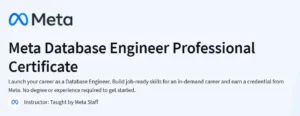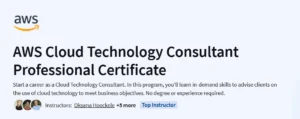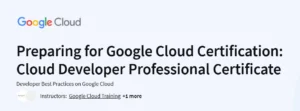Spring Framework Certification Course
A thorough, lab-driven Spring certification program that equips you to build, secure, and scale enterprise-grade Java applications and microservices.
What will you learn in Spring Framework Certification Course
Master Spring Framework core: IoC container, bean lifecycle, and dependency injection
Build web applications with Spring MVC, Thymeleaf, and RESTful services
Simplify development with Spring Boot auto-configuration and Starter dependencies
Secure applications using Spring Security: authentication, authorization, and OAuth2
Integrate persistence with Spring Data JPA, transaction management, and caching
Develop and deploy microservices using Spring Cloud (Eureka, Ribbon, Config, Gateway)
Program Overview
Module 1: Spring Core & IoC
⏳ 1 week
Topics: ApplicationContext vs. BeanFactory, bean scopes, lifecycle callbacks
Hands-on: Configure beans via annotations and XML; explore constructor vs. setter injection
Module 2: Spring MVC & REST
⏳ 1 week
Topics: DispatcherServlet, Controllers, ViewResolvers, REST controllers, JSON conversion
Hands-on: Build a Thymeleaf-based web UI and a separate JSON REST API
Module 3: Spring Boot Essentials
⏳ 1 week
Topics: Auto-configuration, Starters, application.properties, Actuator endpoints
Hands-on: Bootstrap projects with Spring Initializr; customize Actuator health and metrics
Module 4: Data Access with Spring Data & JPA
⏳ 1 week
Topics: Repository interfaces, JPQL, derived queries, pagination, transaction annotations
Hands-on: Implement CRUD repositories for relational entities and configure second-level cache
Module 5: Security with Spring Security
⏳ 1 week
Topics: In-memory vs. JDBC authentication, method security, CSRF protection, OAuth2 clients
Hands-on: Secure web and REST endpoints, integrate “Login with Google” via OAuth2
Module 6: Microservices with Spring Cloud
⏳ 1 week
Topics: Service registry (Eureka), client-side load balancing (Ribbon), externalized config, API Gateway
Hands-on: Build two microservices, register them with Eureka, and route through Spring Cloud Gateway
Module 7: Testing & CI/CD
⏳ 1 week
Topics: @SpringBootTest, MockMvc, embedded databases, Mockito, Dockerfile for Spring apps
Hands-on: Write unit and integration tests; create a Docker image and run tests in a CI pipeline
Module 8: Advanced Topics & Capstone Project
⏳ 1 week
Topics: Message-driven microservices with Spring Cloud Stream, Circuit Breaker (Resilience4j), distributed tracing
Hands-on: Implement an event-driven workflow with Kafka, apply circuit breakers, and trace calls via Sleuth/Zipkin
Get certificate
Job Outlook
Spring expertise is highly sought for Java Backend Developer, Microservices Architect, and DevOps roles
Widely adopted in enterprise, fintech, e-commerce, and cloud-native application development
Salaries range from $90,000 to $150,000+ depending on experience and region
Proficiency in Spring Boot and Spring Cloud accelerates career growth into senior and architecture positions
- In-depth coverage of both traditional Spring MVC and modern Spring Boot/Cloud patterns
- Strong emphasis on security, testing, and microservices best practices
- Capstone integrates messaging, resilience, and tracing for real-world readiness
- Live session format may require schedule flexibility
- Limited exploration of Kotlin or reactive Spring WebFlux alternatives
Specification: Spring Framework Certification Course
|
FAQs
- Yes, a basic understanding of Java is recommended to follow the Spring Framework concepts.
- Familiarity with object-oriented programming (OOP) helps in understanding Spring’s architecture.
- The course starts with a brief recap of Java essentials relevant to Spring.
- Core concepts like classes, inheritance, and interfaces are assumed knowledge.
- Beginners with minimal Java experience may need supplementary Java practice.
- Yes, the course covers creating web applications with Spring MVC and Spring Boot.
- Learners practice building RESTful APIs, controllers, and views.
- Integration with frontend templates and databases is included.
- Hands-on projects help learners understand real-world application development.
- Advanced web application features may require additional study beyond the course.
- Yes, the course teaches database integration using Spring Data and JDBC templates.
- Learners practice CRUD operations, queries, and transactions.
- Understanding of SQL and database concepts is helpful.
- Database integration is demonstrated with hands-on projects for real-world applications.
- More advanced ORM or complex queries may require further learning.
- Yes, the course emphasizes Spring’s core concepts, including dependency injection and inversion of control.
- Learners understand how Spring manages beans and application context.
- Concepts like singleton, prototype scopes, and autowiring are covered.
- Proper use of these principles improves modularity and maintainability.
- Advanced Spring architecture patterns may require additional practice or study.
- Yes, building RESTful APIs with Spring Boot is a key part of the course.
- Learners practice creating endpoints, handling requests, and returning responses in JSON.
- Integration with databases, services, and controllers is demonstrated.
- Error handling, input validation, and best practices for API design are introduced.
- Advanced API features like security, caching, or OAuth may require further learning.





